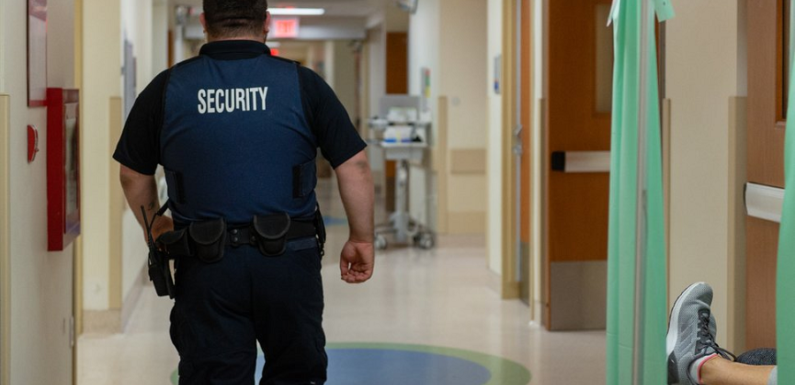
A hospital is a place where patients and visitors are at constant risk of being attacked. Patients’ privacy is compromised due to the nature of their health condition.
To ensure that patient safety, it is important for hospitals to have security measures in place. These measures can include:
– Security guards patrolling the hospital premises
– CCTV cameras are installed at all entrances and exits
– Security personnel on-site 24 hours a day, 7 days a week
What are the Most Important Things to Know in a Medical Emergency?
Here, we will discuss what you should know about medical emergencies. Here we help you work out for a medical emergency. We’ve divided it into three categories: general information, immediate actions, and long-term actions.
A medical emergency is an unexpected event that requires immediate attention. It can be anything from a heart attack to an allergic reaction and can happen at any time of day or night.
Medical emergencies often require immediate attention because they can be life-threatening or cause injury or serious damage to the body. They may require hospitalization or other medical intervention such as CPR and advanced life support techniques.
Medical emergencies are not to be taken lightly. In addition to being a serious health concern, they can also be dangerous and disruptive. It is important that hospitals have proper security measures in place, which can help avoid confusion, prevent panic, and ensure the safety of those in the hospital.
Best Practices for Securing Your Hospital in the Event of a Major Medical Emergency
The best practices for securing your hospital in the event of a major medical emergency are to implement an emergency plan, have a designated person to lead the effort, and have a designated person to call for help.
In case of an emergency, it is important that you know how to respond with urgency. Here are some steps you can take:
– Have a designated person who leads the efforts and knows where all the locations are located.
– Create an emergency plan with specific instructions on what you should do in case of an emergency.
– Make sure that there is someone who knows how to call for help by having their phone number saved in their contacts list.
– In case of power outages or other emergencies, make sure that there is enough battery life on your phone so you can use
A Guide to Assessing Your Physical Security Needs at Work
Physical safety assessments are a vital part of the security risk assessment process. This is because they provide a detailed analysis of the threats that employees and visitors face on a daily basis. Now you can buy 308 ammo and guns from Palmetto State Armory at the best prices.
The most important part of physical safety assessments is to identify and prioritize the risks that are present in your workplace. You can start by assessing your company’s physical security needs, which is not an easy task.
Physical safety assessments take many forms, but they often involve information gathering and interviews with employees, visitors, or other stakeholders. They also involve reviewing policies and procedures for the workplace to determine what policies are in place to mitigate potential risks.
Security Solutions for Hospitals and Clinics
Hospitals and clinics are often targeted by criminals, but security solutions can help prevent these attacks.
These solutions come in many forms and can be implemented to protect patients, staff, equipment, and property. They include CCTV surveillance systems, access control systems (such as biometrics), personal alarms for staff members or patients, intruder detection systems (such as motion sensors), fire protection systems, and more.
Security solutions are not just limited to physical safety tools either. There are also digital security tools that can help prevent cyber-attacks on hospital networks. These include firewalls to secure the network infrastructure from hackers and intrusion detection software that detects suspicious activity on hospital networks.
The Best Ways to Secure Your Private Practice or Home in the Case of an Emergency
There are many ways to prepare for a medical emergency. One of the best ways is to have a medical emergency response toolkit in your home or office.
The key is to make sure that you have the right tools, know what they are and when they will be needed. Here is a list of some of the best ways to prepare for an emergency:
– Medical ID bracelet
– Emergency contact list
– Flashlight
– First aid kit
– Emergency blanket
– Nonperishable food items
Conclusion: Implementing a Routine Security Plan Is Worth It
The conclusion of this article tells us that implementing a routine security plan is worth it. It also says that the best way to implement a routine security plan is to put in the effort and resources necessary. Here we also provides some tips on how to implement a routine security plan.

